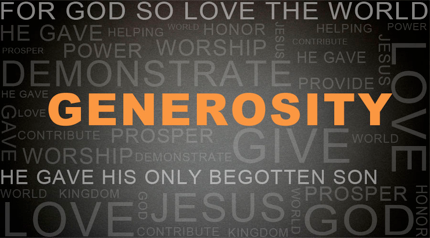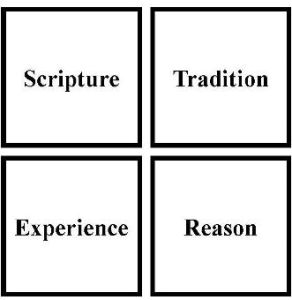Generous Christianity - Tradition
 Last Thursday I gathered in the living room of a family who I had only met through social media, along side other men and women who were responding the invitation of the CANA Initiative. CANA is a collection of individuals and organizations who are collaborating with one another to develop new ways of practicing a more generous Christianity in the United States. The collective hopes to work to find "new ways of doing theology and living biblically, new understandings and practices of mission, new kinds of faith communities, new approaches to worship and spiritual formation, new integrations and conversations and convergences and dreams."
Last Thursday I gathered in the living room of a family who I had only met through social media, along side other men and women who were responding the invitation of the CANA Initiative. CANA is a collection of individuals and organizations who are collaborating with one another to develop new ways of practicing a more generous Christianity in the United States. The collective hopes to work to find "new ways of doing theology and living biblically, new understandings and practices of mission, new kinds of faith communities, new approaches to worship and spiritual formation, new integrations and conversations and convergences and dreams."
 A phrase that was repeated throughout the evening was "generous Christianity". And like any new organization, the language chosen by CANA will be instrumental in getting their message out and received by the larger Christian community. As I sat and listened last night, I pulled out my moleskin and jotted down a few notes that I was to elaborate on in true Wesleyan fashion. What does generous Christianity look like through the Wesleyan Quadrilateral?
A phrase that was repeated throughout the evening was "generous Christianity". And like any new organization, the language chosen by CANA will be instrumental in getting their message out and received by the larger Christian community. As I sat and listened last night, I pulled out my moleskin and jotted down a few notes that I was to elaborate on in true Wesleyan fashion. What does generous Christianity look like through the Wesleyan Quadrilateral?
What does the larger Christian tradition have to say about generosity? What does the way generosity was practiced by the first Christians or even Christians 500 years ago have to do with the way in which we today practice a generous Christianity?
Whether we are in an urban or rural congregational setting, looking back to the first church we are able to see how living with a communal focus that generosity began to take hold in the Christian tradition. Early Christian communities pooled their resources, sharing everything for the betterment of the community. While it should be noted that there many examples throughout Paul's letters that point conflict within communal living, much can be gained with resources are pooled together. This model of communal living is still alive today through community and farm co-ops.
A generous Christianity should also be focused not only on sharing community resources but also examine how the grace of Christ can be generously shared from one person to the next. Evangelism is a term that often has a negative stereotype attached it. To grow the early church, leaders were not concerned with membership drives or annual reports. Those communities were not focused on who their next paid leader would be nor if the community would have enough money for internal extracurricular activities. Instead, the focus was on how to live fruitfully through faithful conversation and faithful genuine love for one another. And I think that is where we should begin to aim our attention.
Genuine love manifested itself as communities where new members were taught to teachings of Christ and mentored through their faith journey. New members to the community were not expected to sign up for the community potluck dinner or to immediately volunteer to run the next VBS. The early Christian tradition shows us that there was an "apprentice-like attitude" towards what new members would be learning. There was an "apprentice-like attitude" that was responded to with the grace and love of Christ.
I think our Christian tradition, if we wipe away the doctrines and committees, points to a generosity that is community based and relational. Our faith communities are called to live generously with one another and to live out our faith with one another generously. That means that our faith, our struggles and triumphs, are to be discussed and celebrated. All too often when we walk into church faith is the last thing we want to talk about for fear of judgement or criticism. That is where a generous Christianity is called to exist, in the moments of despair and triumph where our faith (and doubt) can be lifted up together.